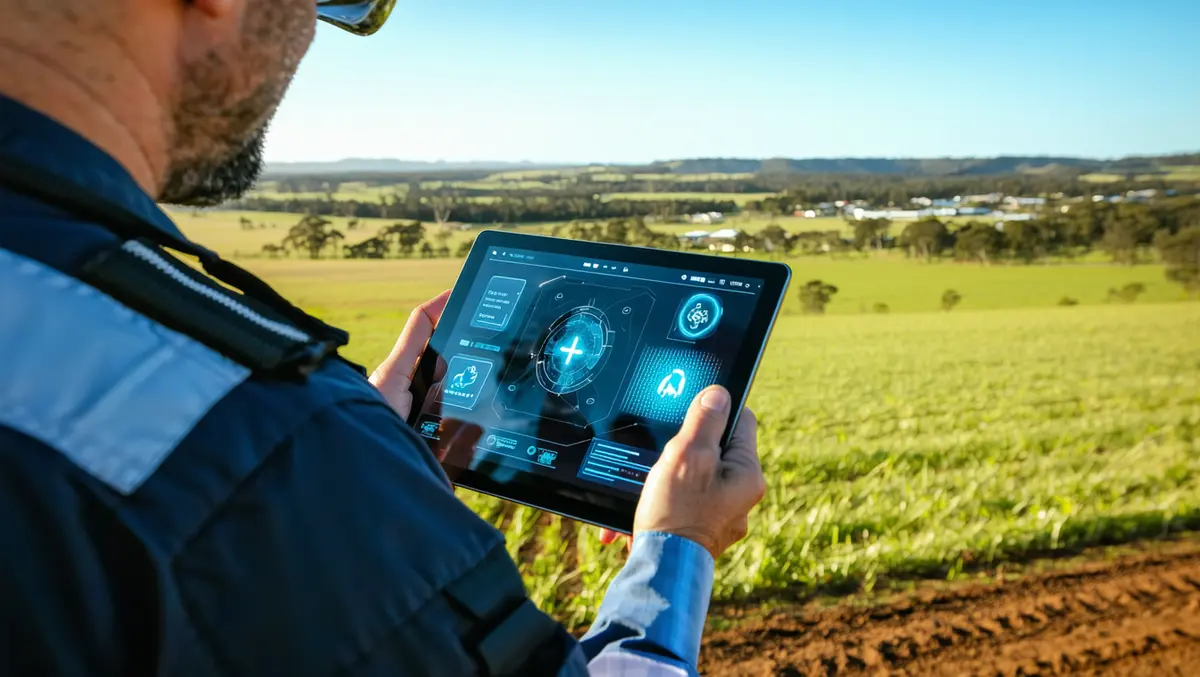
Zeus app revolutionises stroke response in rural Australia
A telestroke application called Zeus enhances stroke care in Australia by allowing paramedics to send patients' data to neurologists before they reach the hospital, facilitating quicker medical response and improved outcomes.
Garry Tierney, a 70-year-old stroke victim from near Nowra, NSW, benefitted from the Zeus app, which enabled neurologists from Sydney to provide medical guidance remotely over 150 miles away. Garry received thrombolytic medication just 31 minutes after he arrived at the hospital, setting a new record for response time.
Rural areas in Australia face significant healthcare challenges, with 50% fewer healthcare providers per capita than urban centres. The National Rural Health Alliance highlights that these communities are at increased risk of health issues and shorter lifespans. The Zeus app addresses this by offering equitable stroke care access, which is especially crucial as the incidence of strokes is expected to double by 2050.
The Australian Stroke Alliance, which developed Zeus, aims to bridge healthcare divides using this technology across diverse areas, including rural and Indigenous communities. The app uses Amazon Web Services (AWS) cloud technology to provide real-time consultations, expediting the diagnostic process that often delays treatment, sometimes requiring inter-hospital transfers.
The initiative is supported by the AWS Health Equity Initiative, a commitment to using cloud credits and technical expertise to promote health equity. Associate Professor Andrew Bivard, Chief Technology Officer of the Australian Stroke Alliance, stated, "Given the annual occurrence of 60,000 strokes and the loss of 12,000 lives across Australia, ensuring swift access to stroke care becomes a paramount imperative. In regional areas, only 35% receive stroke unit care compared to 85% in metro areas. The AWS Health Equity Initiative has given us the opportunity to make a difference in the health and lives of underserved populations."
In regions like South Australia and the Northern Territory, Zeus has improved the delivery of stroke care, facilitating video consultations with neurologists at Royal Adelaide Hospital and enhancing treatment metrics. The use of clot-busting drugs in these areas has seen improved "door-to-needle" times, with a notable percentage of treatments commencing within 45 minutes.
Trials in New South Wales and Victoria have introduced Zeus in over 60 ambulances, enabling communication between paramedics and neurologists even before hospital arrival. This direct communication streamlines patient care and reduces the need for transfers.
The Zeus app has significantly reduced unnecessary hospital transfers in South Australia, cutting these by 72% and increasing the rate of lifesaving thrombectomy procedures. Patients now receive immediate and appropriate treatment, mitigating delays caused by long-distance transfers, common in remote areas.
The Stroke Alliance employs AWS services such as Amazon Elastic Compute Cloud and Amazon Relational Database Service to run the Zeus app, store patient information securely, and conduct data analysis for clinical assessments. There are plans to incorporate generative artificial intelligence to further personalise care and enhance diagnostic capabilities.
Simon Elisha, Chief Technologist for AWS public sector in Australia and New Zealand, remarked, "The Zeus digital telestroke app leverages the power of AWS cloud services to bring rapid and potentially lifesaving stroke diagnosis to remote areas of Australia. By enabling real-time communication between paramedics and neurologists and providing secure data storage and analysis, this innovative solution is breaking down geographic barriers to equitable healthcare access."
"We're proud that AWS technology plays a vital role in getting patients the right treatment at the right time, when every minute counts in stroke care. This is a powerful example of how cloud computing can transform lives and bridge the healthcare divide across our vast nation."


